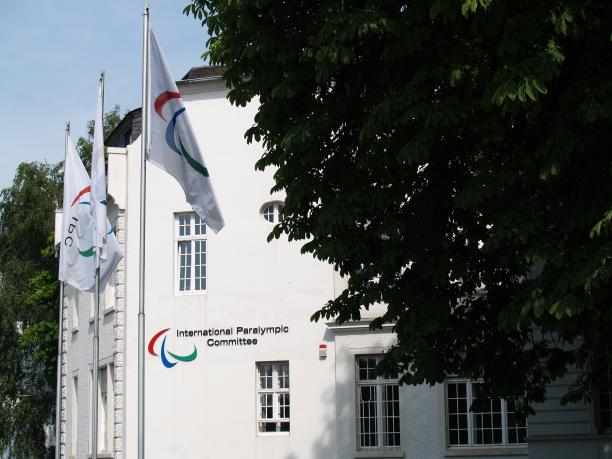10 things you may not know about the IPC
22.09.2014The International Paralympic Committee is best known as the global governing body of the Paralympic Movement, but here are some unusual things that you may not have known.
 The IPC Headquarters are located in Bonn, Germany.
© • IPC
The IPC Headquarters are located in Bonn, Germany.
© • IPC
Just 15 years ago, the IPC only had one full-time member of staff.
The International Paralympic Committee (IPC) is the global governing body of the Paralympic Movement. Its purpose is to organise the summer and winter Paralympic Games. This you may already know, but here are 10 less well-known facts about the IPC.
1. The IPC was formed in 1989 at a meeting in Dusseldorf, Germany. The aim of the meeting – which was attended by 203 participants from 42 countries, including West German Chancellor Helmut Kohl – was to form a new world organisation for sports for athletes with a disability. The IPC was first named International Confederation of Sports Organisations for the Disabled before it was changed to the International Paralympic Committee.
2. Unlike the International Olympic Committee (IOC), the IPC is also the International Federation for nine sports, which means it is responsible organising world and regional championships, as well as overseeing anti-doping and classification for alpine skiing and snowboard, athletics, biathlon, cross-country skiing, ice sledge hockey, powerlifting, shooting, swimming, and wheelchair dance sport.
3. The IPC used to be the international federation for archery, table tennis, equestrian, cycling and lawn bowls. The sport of lawn bowls, which is no longer on the Paralympic Games programme, began to form a new federation in 2002 and is now governed by the International Bowls for the Disabled. In 2006 para-equestrian moved to FEI and para-cycling to UCI. Para-table tennis became part of the ITTF in 2007, and two years later para-archery started the move to FITA.
4. The International Paralympic Committee has been based in Bonn, Germany, since 1999. The former capital of West Germany has a population of 310,000 and is located along the river Rhine. Before that, it shared an office with Flemish League for Sports for People with a Disability in Bruges, Belgium and for a short period from 1997-99 was also located in a spare bedroom there.
5. You might be forgiven for thinking that the organisation behind the incredible spectacle of the Paralympic Games is a huge organisation. But actually there are only around 70 members of staff at the IPC headquarters. They work across nine sports, in science, classification and anti-doping, plan the Paralympic Games and work in media, communications, marketing and broadcast. Just 15 years ago, the IPC only had one full-time member of staff.
6. The IPC is a multi-cultural organisation and has staff from more than 20 different nationalities representing four continents working at its head office.
7. One of the IPC members of staff is a Paralympic gold medallist from London 2012. Germany’s wheelchair basketballer Annika Zeyen works as Design Project Co-ordinator, which involves implementing the IPC brand book, promoting the Paralympic values and supporting the IPC members and stakeholders in design.
8. The momentum of Vancouver and London has allowed the IPC to grow enormously. In the past four years, the organisation has doubled in size.
9. #Paralympics was the top trending sport event on Twitter in the UK in 2012 – beating the #Olympics. Whilst the 2012 Olympic Games were using a multitude of hashtags, the consistency of #Paralympics allowed it to rise to the top.
10. The IPC has an archive of many weird and wonderful objects from mascots and medals to Opening and Closing Ceremony costumes; from an Athens laurel wreath to a dried flower bouquet presented to medallists in Sochi. In addition the collection holds many branded objects like a bottle of Vancouver 2010 maple syrup, London 2012 branded Union Jack pink tea towels and tea set, and Sochi 2014 Russian nesting dolls. Other unusual objects include a collection of prosthetic legs from the Cambodian standing volleyball team, which were sent as a protest that standing volleyball was not included in the Beijing 2008 Paralympic Games. (You can contact archive@paralympic.org for more information).



















